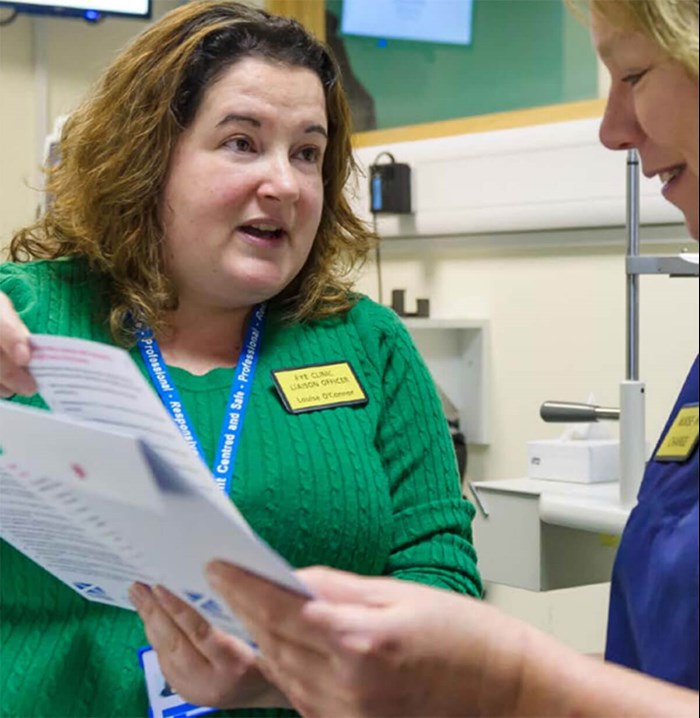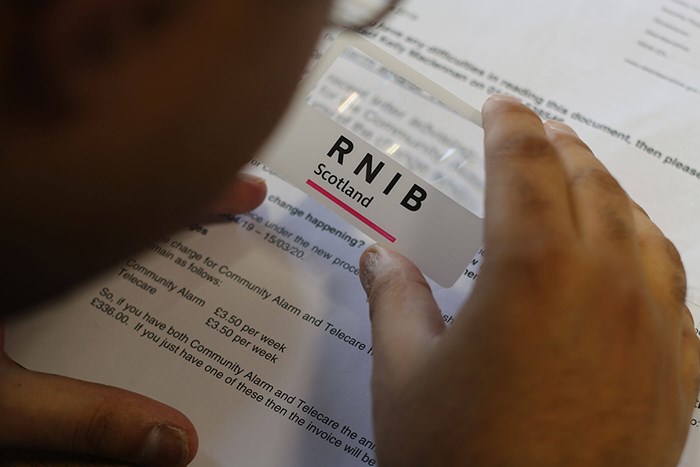New research by the Royal National Institute of Blind People (RNIB) found that more than 60 percent of people with sight loss surveyed said it would have a hugely positive impact on quality of life to receive healthcare information in the format they need.1
Amanda Foster, 53, from Aberdeen who has an undeveloped optic nerve and retina, said: “When we were getting vaccinations, I missed the first appointment because the letter came in print. I had to phone to make another appointment. Even though I told the people that I'm blind, they kept sending me print letters.

“I feel that, if people consent, accessibility requirements should be on your medical file so that health practitioners know someone’s needs. If I did receive information in the correct format, I wouldn't miss appointments and it would give me much more independence.”
The Patient Rights (Scotland) Act 2011 and its accompanying Charter of Patient Rights and Responsibilities set out that: “You have the right to be given information about your care and treatment in a format or language that meets your needs.”

Around 180,000 people in Scotland have significant sight loss. RNIB Scotland’s Communication Failure report found that whilst good policies may exist on paper, too often people with sight loss receive information in formats they can’t read – even when healthcare providers know they have sight loss.
The consequences of not getting information that people can read and understand can result in serious harm and safety issues. People have missed vital appointments, cancer screenings or been unable to use home test kits because of lack of clear instructions in an accessible format.

RNIB Scotland’s director James Adams adds: “Not being able to access personal health information can also cause embarrassment and loss of dignity. Blind and partially sighted people have told us they’ve had to ask a child or friend to read out their most personal medical details. Others have told us they compromised their treatment because identification and dosage information on medication could not be read.
“Whilst there are examples of good practice, more can be done, for instance it should be standard that patients receive a text or email reminder in respect of when your appointment is a few days in advance to remind you.”
Across the UK, RNIB is working closely with NHS providers to ensure they meet their legal obligations to provide blind and partially sighted people with accessible healthcare information.



